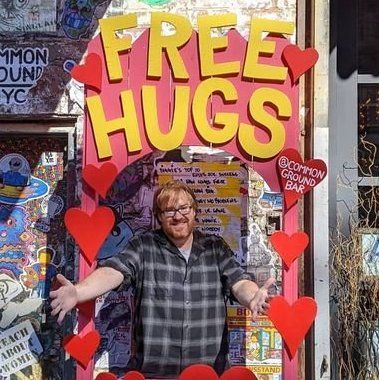On May 25, 1962, President John F. Kennedy stood before a crowd in Houston, Texas, and declared to the world that the United States was going to put a man on the moon. At the time, the Space Race between the U.S. and the U.S.S.R was not going well for America.
The Soviets had put the first satellite in orbit when they launched Sputnik in 1957, and then put the first human in space when Yuri Gagarin was sent up in 1961. There was a fear that the U.S. would forever be playing catchup in the race to the stars.
Yet in his celebrated speech, President Kennedy thrilled the nation with his determination to put an American on the moon. “We choose to go to the moon. We choose to go to the moon in this decade and do the other things, not because they are easy, but because they are hard, because that goal will serve to organize and measure the best of our energies and skills, because that challenge is one that we are willing to accept, one we are unwilling to postpone, and one which we intend to win, and the others, too.”
It was a stirring call to action — one that would ultimately help expand humanity’s scientific knowledge and to pinpoint our place in the cosmos. Kennedy did not live to see Neil Armstrong and Buzz Aldrin walk on the surface of the moon, but when they did the astronauts brought a message of peace with them: The crew of Apollo 11 carried two medals commemorating Soviet astronauts who had lost their lives on missions to show that this really was “one giant leap for mankind.”
To celebrate the anniversary of that stirring speech, here are 10 other presidential speeches that have changed the course of history.
The period for a new election of a citizen to administer the executive government of the United States being not far distant … I should now apprise you of the resolution I have formed, to decline being considered among the number of those out of whom a choice is to be made.George Washington
George Washington’s “Farewell Address” of 1796 set the standard that U.S. presidents would serve only two terms in office. As the most popular figure of his day, and the first to hold this office, Washington could have served as President for life. Instead, he chose to step down from his position of power, putting the good of the nation before his personal ambition.
Washington had already displayed his selflessness when, in 1783, he gave up his military power to Congress. When King George III of England was told Washington meant to return to private life he declared, "If he does that, he will be the greatest man in the world."
"A house divided against itself cannot stand." I believe this government cannot endure permanently half slave and half free.Abraham Lincoln
Abraham Lincoln delivered his historic “House Divided” speech in 1858 when he was chosen as the Republican nominee for the presidency. The United States was already on the precipice of war over the matter of slavery, and Lincoln told voters that they would not be able to ignore the issue much longer. There would have to be a great reckoning, and it was not one that Lincoln intended to lose.
With malice toward none; with charity for all; with firmness in the right, as God gives us to see the right, let us strive on to finish the work we are in, to bind up the nation's wounds, to care for him who shall have borne the battle and for his widow and his orphan, to do all which may achieve and cherish a just and lasting peace among ourselves and with all nations.Abraham Lincoln
After Lincoln won the presidency in 1861, the United States endured a bloody civil war over the issue of slavery. In his second Inaugural Address in 1865, with the Union at the precipice of victory and millions of enslaved people freed by the Emancipation Proclamation, Lincoln set out his bold vision of reconstruction and reconciliation between the North and South.
It is that the world be made fit and safe to live in; and particularly that it be made safe for every peace-loving nation which, like our own, wishes to live its own life, determine its own institutions, be assured of justice and fair dealing by the other peoples of the world as against force and selfish aggression. All the peoples of the world are in effect partners in this interest, and for our own part we see very clearly that unless justice be done to others it will not be done to us.Woodrow Wilson
Despite campaigning for President on a vow not to enter the First World War, Woodrow Wilson found himself leading the United States into the conflict. In 1918, looking toward the peace that would follow the war, Wilson gave a speech setting out 14 points necessary for a lasting settlement. His plan led to the creation of the League of Nations, which paved the way for the United Nations of today.
Let me assert my firm belief that the only thing we have to fear is fear itself.Franklin D. Roosevelt
In Franklin D. Roosevelt’s first Inaugural Address in 1933, he set out clearly the dire state of the nation amid the Great Depression. Yet he also sought to comfort Americans and promised change. Reflecting that fear itself was the only true obstacle, Roosevelt set out his project to rebuild the United States, the New Deal, telling his audience that “this nation asks for action, and action now.
The United States pledges before you — and therefore before the world, its determination to help solve the fearful atomic dilemma — to devote its entire heart and mind to find the way by which the miraculous inventiveness of man shall not be dedicated to his death, but consecrated to his life.Dwight Eisenhower
In 1953, the United States and the Soviet Union were facing each other in a Cold War that threatened at any moment to turn into a destructive conflict of atomic warfare. In his “Atoms for Peace” speech, Eisenhower opened up nuclear technology to the world, instead of guarding it secretly.
Trading fear for knowledge, this helped demystify the new science, which paved the way for the development of nuclear energy around the globe.
And so, my fellow Americans: ask not what your country can do for you — ask what you can do for your country. My fellow citizens of the world: ask not what America will do for you, but what together we can do for the freedom of man.John F. Kennedy
John F. Kennedy laid down a challenge to Americans and to the world in his Inaugural Address of 1961. His speech set the tone for a government that would bring the nation together and foster a global community. Promoting service over selfishness, he promised the country that no challenge would be too great if people worked together.
We cannot, we must not, refuse to protect the right of every American to vote in every election that he may desire to participate in … It is all of us, who must overcome the crippling legacy of bigotry and injustice. And we shall overcome.Lyndon Johnson
The United States in 1965 (as it is now) was struggling with issues of racial injustice. After 600 civil rights marchers in Selma, Alabama, were brutally attacked by state troopers, the nation was shocked into action. President Johnson went to Congress and pressed for the passage of the Voting Rights Act. The new law would guarantee equal rights to vote to all U.S. citizens by abolishing discriminatory voting laws.
Mr. Gorbachev, tear down this wall!Ronald Reagan
The Cold War had dragged on for 40 years by the time President Reagan stood to speak beside the Brandenburg Gate in a divided Berlin in 1987. Outlining simple demands, he challenged the Soviet Union to speed up its promises of reform and freedom. It marked the closing chapter of an age of uncertainty, and promised better relations between the two global superpowers.
For when we have faced down impossible odds, when we've been told we're not ready or that we shouldn't try or that we can't, generations of Americans have responded with a simple creed that sums up the spirit of a people: Yes, we can. Yes, we can. Yes, we can.Barack Obama
In a campaign speech in New Hampshire in 2008, Barack Obama hit on a phrase that channelled the optimism of America. He would later repeat it in his acceptance speech delivered on November 4, 2008 in Chicago after his victory.. He reminded Americans, “A man touched down on the moon, a wall came down in Berlin, a world was connected by our own science and imagination … America, we have come so far.”
Featured image credit: nasa/ Unsplash
















